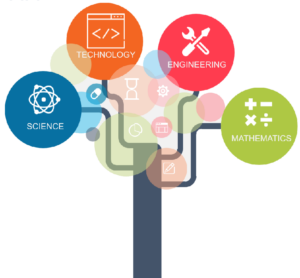
AGREEMENT NUMBER – 2020-1-NO01-KA226-VET-094190
STEMSOFT – Empowering STEM candidates for employability and entrepreneurship with enhanced non-technical soft and transversal skills
STEMSOFT – Empowering STEM candidates for employability and entrepreneurship with enhanced non-technical soft and transversal skills
Erasmus+ KA226 – Partnerships for Digital Education Readiness
CONTEXT
STEMSOFT launch pad is an integrated digitalised service addressing the development of 21st century SOFT SKILLS and TRANSVERSAL competencies needed in the labour market targeting STEM (Science, Technology, Engineering and Maths) candidates through open and innovative practices to enhance their employability.
Due to the increased demand on STEM jobs in a changing European labour market, especially in an Industry 4.0 perspective, employees need a more diverse skills profile comprising both hard skills, core transversal competences like digital skills and soft skills. Recent research (Deming, D. 2017) showed that since 2000, jobs that require “non-cognitive” skills, such as the ability to communicate and work in teams, grew much faster than jobs mainly requiring skills measurable by IQ or achievement tests. Soft skills are much more valued in the labour market than any time before.
AIMS AND TARGET
The project aims at preparing STEM candidates with non-technical skills such as critical thinking, idea generation and interdisciplinary ways of working alongside their technical hard STEM skills. The consortium comprises different work cultures and training traditions and with input from international perspectives through the range of associated partners.
This STEM employability skills project aims to address this by defining relevant non-technical soft skills and transversal skills, described in an EQF/ECVET format, targeting the following groups and delivering them in different digitalised forms: – Migrants with a STEM background who are unemployed or underemployed – Mobile workers seeking employment opportunities in another country or region – NEETs (regardless of gender) – Undergraduates or graduates with a STEM background who are finding it hard to get a STEM job due to ethnicity, disability or gender – People in career transitions (people without a formal STEM background wanting to move to a STEM field as an alternative career) facilitating permeability and flexible learning and training pathways.
OUTCOMES
Based upon a survey to explore to what extent non-technical skills, soft skills and transversal skills are integrated elements in existing STEM provisions, a competence map of STEM-oriented learning outcomes covering these skills will be developed in an EQF/ECVET format. This mapping will correspond to a Skills bank and ESCO system to secure transferability between existing training provisions and the additional STEMSOFT training. This in turn will boost the employability of candidates and their access to the labour market. The partnership will collate more than 5,000 OERs (including MOOC-type resources) to be made available via a learning environment which will cater for a wide audience and will provide in addition training courses in soft skills tailored to the above target groups. Wider stakeholders will also be addressed such as employment agencies, HR managers, recruiter, trainers/coaches, educational institutions. In order to reach the project’s objectives, the partnership will develop a range of intellectual outputs: I01 “Competence Matrices and recognition of prior learning” will develop EQF and ECVET compatible qualification matrices and align previous learning acquired to transversal skills sought by the industry IO2 “Training programmes based on OERs (Online Educational Resources)” will design a learning environment with a provision of more than 5,000 OERS and training paths for specific target groups. IO3 “Online platform with Skills bank” will set up a user service combining the OER provisions and recognition of (prior) learning towards a certificate. IO4 “Piloting Training” will prepare a first rollout of training materials aimed at all target groups through MOOCs and other digital channels, including a facilitator handbook.
IMPACT
The main areas of impact which we will see through the project are:
- A direct impact on the lives of the candidates who directly take part in the project, in terms of boosting their employability through their soft skills development
- An improved knowledge among candidates of the importance of soft skills development to secure a job in the labour market in the STEM sector
- An improved knowledge among stakeholders of the value and recognition of soft skills in the STEM sector
- Increased knowledge of soft skills accreditation and recognition of prior learning
- Improved digital skills through involvement in a diversity of training and upskilling provision
LINKS
Coordinator: NTI-MMM Multilateral Monitoring and management (NTIM), Norway

This project has been funded with support from the European Commission. This publication reflects the views only of the author, and the Commission cannot be held responsible for any use which may be made of the information contained therein.

